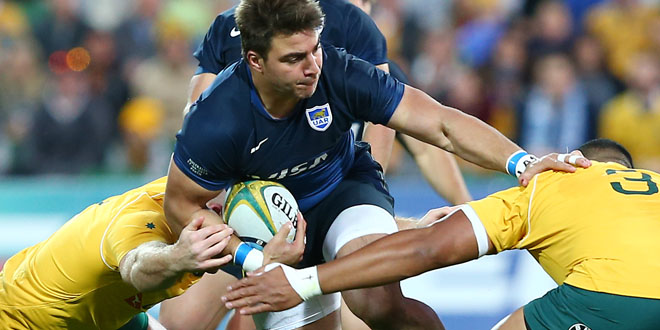Through international competition rugby has expanded significantly. Over the duration of one generation there have emerged increasingly competitive teams from a variety of continents. Indeed Argentina, Japan and Georgia all lit up Rugby World Cup 2015.
Yet many facets of rugby being an Old Boy’s Club remain strong. Few leading powers are actually involved in regular competition against non-founding unions.
Founding Unions
Although it goes back further the genuine meaning of the Founding Unions (or members) is those who had votes in the 1980’s. It was those unions who changed the sport forever by having the means to vote for or against the creation of a Rugby World Cup.
Those who voted were Australia, England, France, Ireland, New Zealand, Scotland and Wales. Each had two votes. South Africa opted to remain neutral. This was the case based growing opposition from abroad to apartheid rule.
Argentina, Canada, Italy and Japan gained one vote each in 1991. This meant little overall as the Founding Unions retained an absolute majority. Between them they would host all Rugby World Cups from 1987-2015.
Established Rivalries
Relations between them has also largely remained unchanged. The only true alterations have been the addition of Italy and Argentina to the Six Nations and Rugby Championship respectively.
Australia, New Zealand and South Africa continue to host three tests against a northern Founding Union every June. In November they then play three or four away test matches against Six Nations Unions.
New Zealand considers Australia and South Africa to be their biggest rivals. This is followed by France and England and now Argentina. Ireland, Scotland and Wales falling in slightly behind. It is similar when looking at Australia and South Africa.
Wales’ biggest annual match is against England. Games against France, Ireland and Scotland also dominate the priority list. France and England view each other as arch rivals. Scotland and Ireland both also consider England to be the number one enemy.
Against intercontinental opposition the major rivalries for the Europeans is Australia, New Zealand and South Africa. Argentina is arguably considered a greater rivalry from a French perspective than it is from a Welsh. The Top 14 and many losses over the past fifteen years are the reasons for this.
Based on Rugby World Cups Ireland has a special rivalry with Argentina. With them having faced in elimination matches in 1999, 2003, 2007 and 2015 they have a similar Rugby World Cup attachment to that of New Zealand and France.
Unlike the other five Italy shares a direct rivalry with Argentina. Large migration to Argentina and neither having a British culture have contributed to this. Also having done so is the flow of Argentine players to Italy and the selection of many to the Italian test side.
In brief the established rivalries involving Founding Unions are limited to matches against Founding Unions. Argentina being the exception.
Need to Create More Rivalries
The established cycle has seen Wales hosting Australia virtually every November since 2003. Similarly South Africa tend to play at Twickenham most years. What this means is the international test calendar cycle has been uninterrupted and is not serving the greater interests of the sport.
Romania has been cut from the priority list. Test matches against Six Nations sides have seized to exist. Having been overtaken by Georgia it is now the turn of the former Soviet Republic to have headaches in struggling to play against the leading European powers.
For Georgia the result has been one away test each of Ireland and Scotland. The latter set to take place next month. This is to be just the second match between the teams. The prior fixture was a pool match in Rugby World Cup 2011. On that occasion Scotland was given a very difficult match, ultimately winning 15-6.
This fixture could have created a rivalry. Rather than taking the opportunity the Scottish Rugby Union (SRU) continued playing familiar opponents during the 2012-2015 cycle. A different approach could have seen Scotland playing in Tbilisi, perhaps twice during this years.
In Australia the lack of rivalries has been a largely ignored issue. This has been unfortunate as it would be of extreme interest for the Wallabies to have more rivalries against more countries.
Australia is competing against rivals codes, namely Rugby League (NRL) and Australian Rules Football (AFL). Both are far more popular and enjoy extremely successful and profitable professional domestic competitions. Rugby cannot compete with these.
It is the Wallabies which differentiates rugby from these sports. Rugby is international, in fact increasingly global. Australia fails to act to embrace this. Instead of building new rivalries the Australian Rugby Union (ARU) continues to, like the SRU, miss the boat.
In 2016 Australia play a staggering fifteen test matches. Yet four games are against England, three against New Zealand, two against South Africa and Argentina. The remaining four are one against each of France, Ireland, Scotland and Wales.
The ARU charges extremely high prices for home test matches and is certainly driving away interest. Home attendances of 65,328 in Sydney, 30,327 in Brisbane and 16,202 in Perth were recorded. None approached capacity. TV viewing numbers are not good either. Only 97,000 people reportedly tuned in to watch the Wallabies take on Argentina in their home international.
In 2011 Australia hosted Samoa in a Rugby World Cup warm-up match. Miraculously the Wallabies lost. Australia has not played against Samoa since. Yet in 2016 Australia plays England four times. In 1973 Australia lost to Tonga yet would not play them again for 13 years. Likewise, South Africa’s loss against Japan thirteen months ago has not seen a rematch scheduled.
The explanation is simple – the ARU’s priorities are on financial not sporting matters. The flaw is that through investment in a rivalry against Samoa the ARU could further promote the Wallabies. The prospects of losing again are low. It would promote the product against other sports. It would also be low-cost to play a match in Apia. Fiji is a second example, the Wallabies never play there either.
Argentina’s approach is different. Development paths have bee used for decades to great effect. The Argentina XV play two of Brazil, Chile, Paraguay and Uruguay every year. They also play three of these in the Americas Rugby Championship in addition to Canada and the USA. Then there is Romania in the Nations Cup every year. Games against the Fiji Warriors are another instance.
The Rugby Championship means Los Pumas are in greater demand. They are closer to Australia, New Zealand and South Africa from a Six Nations perspective than previously. This means greater profits can be gained from hosting Argentina now than in the past.
Argentina will play Wales, Scotland and England in November. Before doing so they will play a test match against Japan in Tokyo. This is a way to create an additional rivalry. Founding Unions have a lot to learn.
 Americas Rugby News Rugby news from across the Americas!
Americas Rugby News Rugby news from across the Americas!




